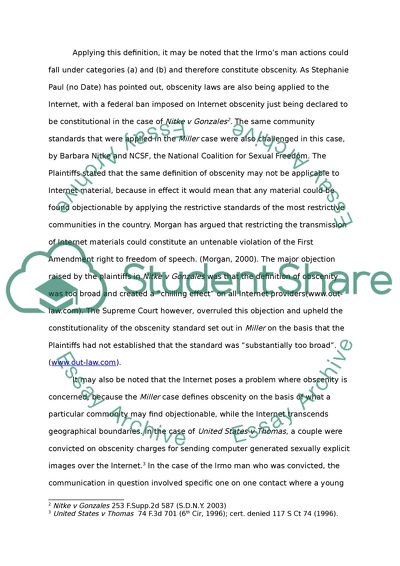Cite this document
(The Problem of Obscenity, Defamation, Freedom of Expression, Privacy, Term Paper, n.d.)
The Problem of Obscenity, Defamation, Freedom of Expression, Privacy, Term Paper. Retrieved from https://studentshare.org/law/1731259-law-and-the-media
The Problem of Obscenity, Defamation, Freedom of Expression, Privacy, Term Paper. Retrieved from https://studentshare.org/law/1731259-law-and-the-media
(The Problem of Obscenity, Defamation, Freedom of Expression, Privacy, Term Paper)
The Problem of Obscenity, Defamation, Freedom of Expression, Privacy, Term Paper. https://studentshare.org/law/1731259-law-and-the-media.
The Problem of Obscenity, Defamation, Freedom of Expression, Privacy, Term Paper. https://studentshare.org/law/1731259-law-and-the-media.
“The Problem of Obscenity, Defamation, Freedom of Expression, Privacy, Term Paper”. https://studentshare.org/law/1731259-law-and-the-media.


